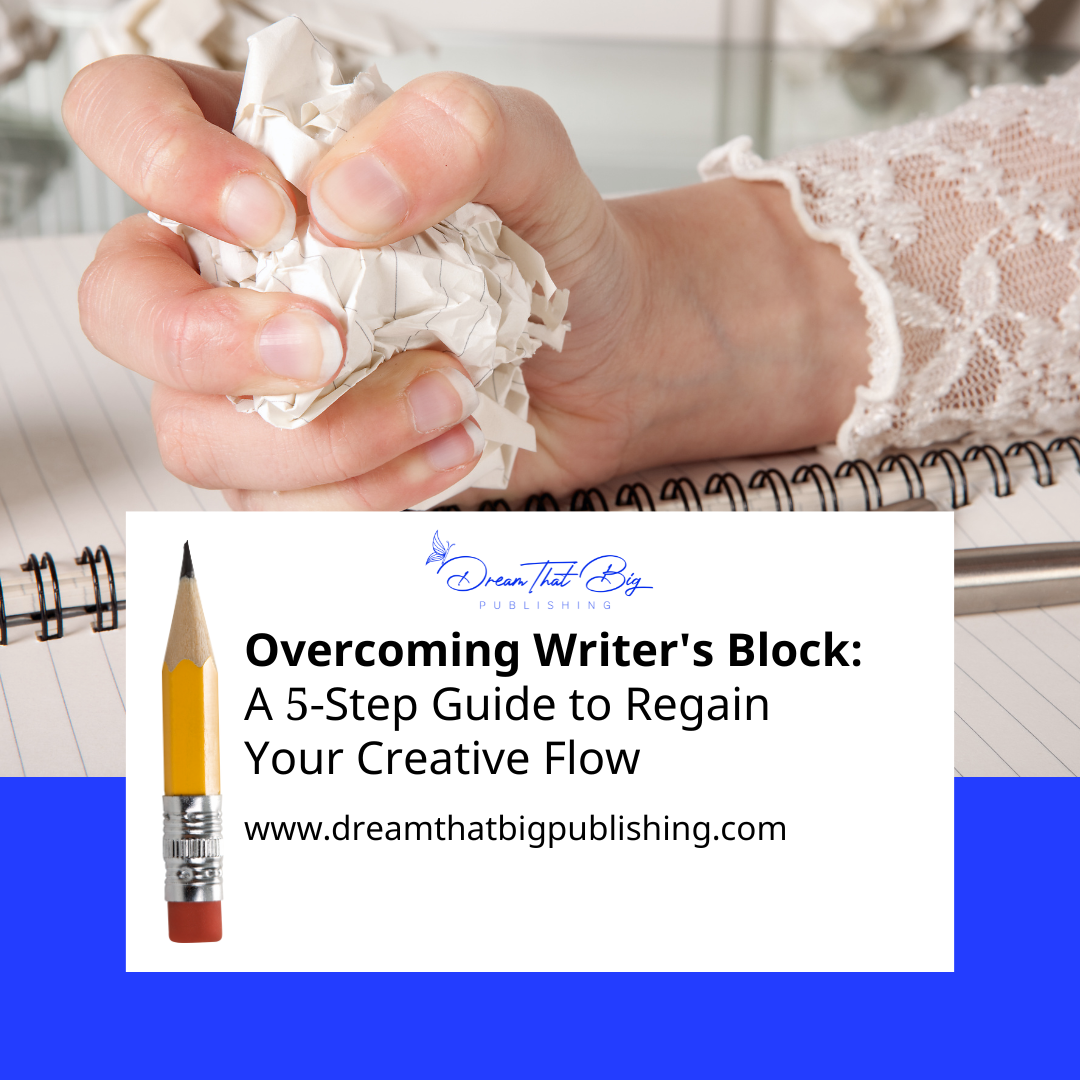Have you ever experienced the battle of content creation? I’m talking about going through the various phases of writing, from words flowing effortlessly like a river, to struggling to put down what seems crystal clear in your mind, and finally hitting that dreaded writer’s block, where you feel utterly empty, stuck, and discouraged.
It’s entirely normal for writers to encounter one or more of these phases, and even though it may make you feel isolated while you’re going through it, rest assured, you’re not alone.
In this blog post, I’ll focus on writer’s block and how to break through it without losing momentum on your writing project. I’ll draw from both personal experience and research, providing you with principles and strategies to regain your creative stride after facing writer’s block.
Let’s get started.
What is writer’s block:
To ensure that everyone reading this comprehends the concept of “writer’s block,” let’s begin with a clear definition. According to the insights of writing expert Mike Rose, writer’s block can be succinctly described as follows: “It’s that frustrating moment when you struggle to initiate or continue writing, and it has nothing to do with your fundamental skills or commitment.” Put simply, it’s those instances when you attempt to transfer your thoughts onto paper, but it feels as though your ideas are mired, and progress remains elusive. Virtually every writer encounters writer’s block at some juncture, especially when deadlines are looming large. This underscores the importance of having effective strategies to surmount this obstacle.
Writer’s block typically falls into two primary categories: challenges stemming from motivation and distractions, or the anxiety that accompanies the act of writing itself. Within these categories, one encounters specific hurdles and potential remedies. In this initial installment of our two-part blog series, we will explore five strategies designed to help you overcome the hurdles of motivation and distractions—two common contributors to writer’s block.
Understanding Writer’s Block:
Writer’s block is a common affliction that affects writers of all levels, and if you’re a first-time writer, it’s essential to grasp this concept to navigate your writing journey effectively. It can manifest in various ways, creating barriers that hinder your ability to express your thoughts and ideas effectively. In this section, we’ll provide an in-depth exploration of writer’s block, focusing on its diverse forms, the underlying causes, and how it can impact your writing process.
Diverse Forms of Writer’s Block:
Inspiration Dearth: One of the most recognized forms of writer’s block is the feeling of having no inspiration or creative energy to begin writing. You may sit down to write but find yourself staring at a blank page, unable to formulate ideas or engage with your topic.
Motivation Deficit: Another aspect of writer’s block involves a lack of motivation to continue writing. You might start with enthusiasm, but as you progress, your energy wanes, and you struggle to maintain momentum.
Distraction Avalanche: External and internal distractions can derail your writing process. These distractions can range from noisy environments and interruptions to self-doubt and overthinking, all of which impede your ability to focus on your work.
The Impact of Writer’s Block:
Writer’s block can be a frustrating and disheartening experience, especially for first-time writers. It can lead to delays in your writing projects, missed deadlines, and feelings of self-doubt. It’s essential to recognize that writer’s block is not a reflection of your writing abilities or dedication; it’s a common hurdle encountered by writers at various stages of their careers.
Navigating Writer’s Block:
Now, let’s discuss how to overcome these challenges and continue your writing journey with confidence. In the next section, we will explore research-backed strategies that can help you conquer writer’s block and regain your creative stride. These strategies encompass techniques to boost inspiration, reignite motivation, and manage distractions effectively.
Finding a Lack of Inspiration or Motivation to Begin
The Challenge: It’s a common scenario for writers to stare at a blank page, feeling devoid of inspiration or motivation to start writing.
Solution: To ignite your creative spark, consider these strategies:
- Set Clear Goals: Define your writing objectives and break them into smaller, manageable tasks.
- Establish a Routine: Develop a writing routine to create a sense of discipline and consistency.
- Seek Inspiration: Read books, articles, or engage in activities that resonate with your writing topic.
- Free Writing: Start writing without worrying about perfection. The act of writing often leads to inspiration.
Trouble Articulating Your Own Ideas
The Challenge: Writer’s block can manifest as an inability to express your thoughts effectively.
Solution: To articulate your ideas with ease, follow these steps:
- Outline Your Content: Create an outline to organize your thoughts and structure your writing.
- Freewriting: Write without inhibition, allowing your ideas to flow freely. Editing comes later.
- Research: Gather information and facts related to your topic to bolster your confidence.
- Peer Review: Share your work with a trusted friend or colleague for constructive feedback.
Indecision Between Different Directions the Paper Can Take
The Challenge: Being torn between multiple directions for your paper can lead to confusion and indecision.
Solution: To resolve this, try these techniques:
- Mind Mapping: Visualize your ideas and possible directions using mind maps.
- Set Clear Objectives: Determine the primary goal of your paper and stay focused on it.
- Consult Your Outline: Refer back to your outline to ensure you’re following a logical progression.
Uncertainty About the Argument of the Paper
The Challenge: Uncertainty about your paper’s main argument can lead to writer’s block.
Solution: Clarify your paper’s argument with these steps:
- Thesis Statement: Develop a clear and concise thesis statement that encapsulates your argument.
- Research and Evidence: Gather supporting evidence and research to strengthen your argument.
- Peer Feedback: Seek input from peers or mentors to refine and validate your argument.
Internal and External Distractions
The Challenge: Both internal (e.g., self-doubt) and external distractions (e.g., noisy environments) can hinder your writing flow.
Solution: Manage distractions effectively:
- Create a Dedicated Workspace: Set up a quiet, clutter-free writing space.
- Mindfulness and Meditation: Practice mindfulness techniques to stay focused.
- Eliminate Digital Distractions: Use apps or tools to block social media and unnecessary websites.
- Self-compassion: Be kind to yourself; writer’s block happens to everyone.
By understanding the various facets of writer’s block, you can approach your writing endeavors with greater awareness and resilience. Remember that writer’s block is a temporary setback, and with the right tools and strategies, you can triumph over it and continue your writing journey with renewed vigor. Stay tuned as we delve deeper into these strategies in the upcoming sections of this blog series.
References:
- Rose, M. (2006). Writer’s block: The cognitive dimension. Carbondale: Southern Illinois Press.
- Murray, R. (2015). Writing for Academic Journals (2nd ed.). Open University Press.
- Silva, P. (2007). How to Write a Lot: A Practical Guide to Productive Academic Writing. American Psychological Association.
- Zinsser, W. (2006). On Writing Well: The Classic Guide to Writing Nonfiction (30th Anniversary Edition). Harper Perennial.
-Octoryia Robinson
Facebook
Twitter
LinkedIn

